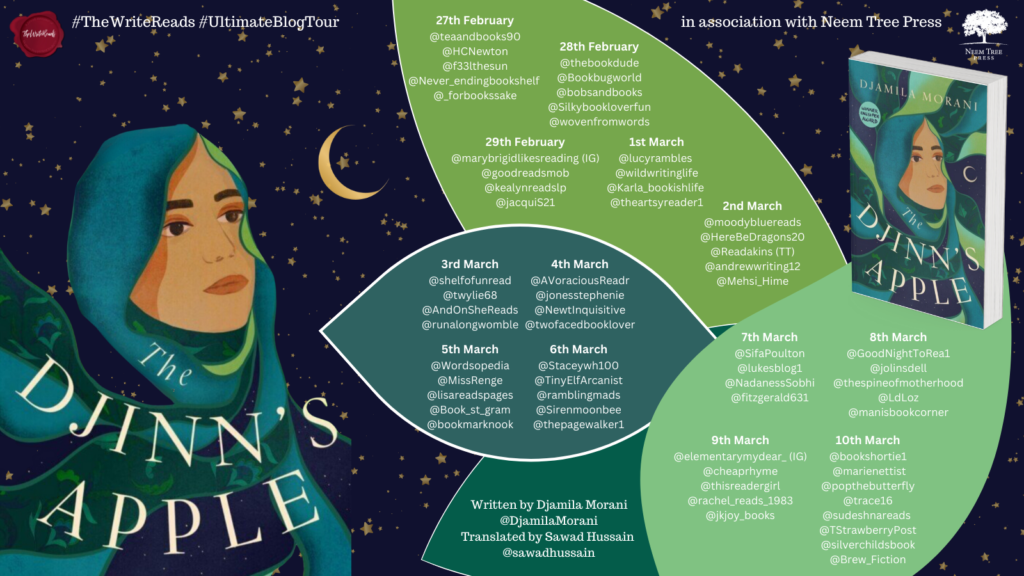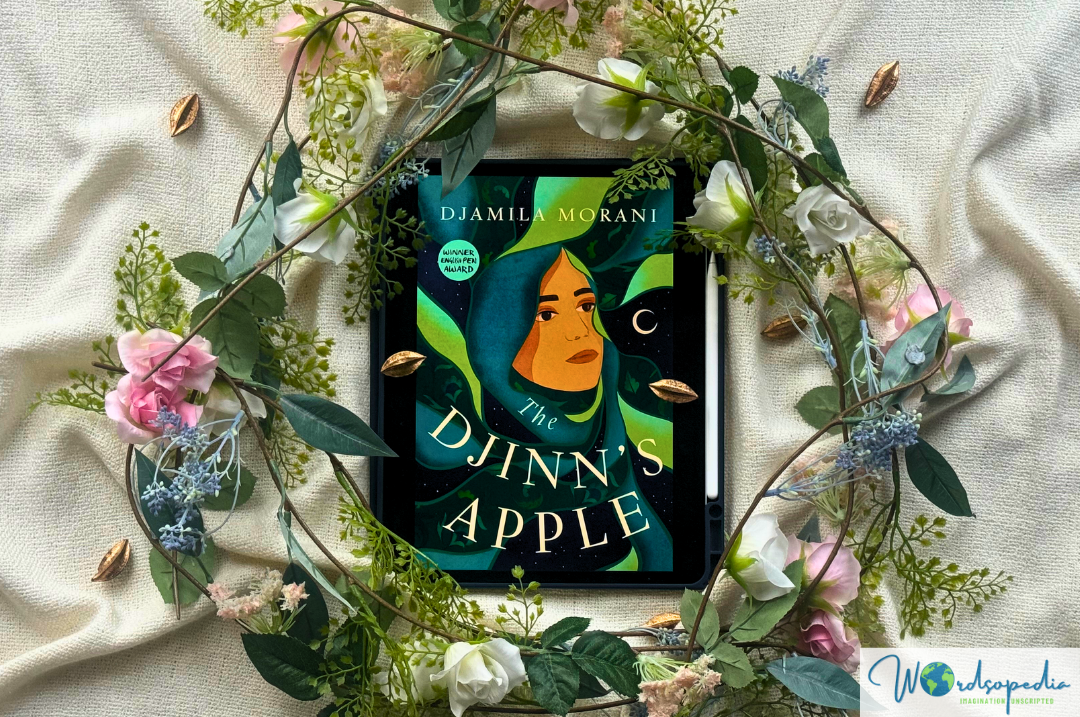Djamila Morani’s The Djinn’s Apple is a captivating YA historical mystery novella that reminded me of Arabian Nights.
Set in 8th century Baghdad, commonly known as the golden age of Baghdad, the short story follows Nardeen, a gifted twelve-year-old girl who witnesses the horrific murder of her entire family and makes it her life’s mission to avenge her family’s massacre.
Nardeen’s father, a doctor, is an avid reader and inculcates a love for books and medicines in his daughter too. Her idyllic life takes a tragic turn when a politically motivated gang slaughters her entire family. Two days later, when she comes to her senses in Bimaristan, she is relieved to know Muallim Ishaq, a professor and respected scholar, has taken her under his wings.
And thus begins a new chapter in Nardeen’s life.
She immerses herself in books, learning all about herbs and potions. At a time when women are destined to be nurses, Nardeen’s teacher guides her to become a doctor.
Morani’s fast-paced narration is filled with twists and turns and it held me glued. While the premise is intriguing, the strength of the novel lies in its vivid and evocative writing. The author transported me to an era centuries ago, to a mystical and mysterious city. I could visualise the bustling streets and markets, the people and their attire, the homes, and the hospital. Being a history buff, I enjoyed the timeline in which the story is set.
Nardeen and Muallim Ishaq are the main characters, and both are sketched in-depth. Nardeen’s transformation as the story progresses is quite evident. Readers would connect with her easily and find themselves rooting for her success. Ishaq’s intriguing backstory and crafty demeanor are skillfully portrayed too.
While the epilogue provides a satisfactory resolution, the ending feels a bit rushed and the romance between Nardeen and Suhaib appears superficial. Nevertheless, not just Young Adults; the targeted audience, I feel even middle grader children might appreciate this fantasy read.
The appendix is a valuable resource and sheds light on unfamiliar words, the history of the Golden Age of Baghdad, and The Bimaristan. Readers unfamiliar with the historical context would find this section quite helpful.
A promise is a crime if you don’t uphold it, a promise is shameful if you break it.
Betrayal sleeps below the shade of trust— if we cut off the branches of this trust, if we uprooted the tree entirely, then we wouldn’t be afraid anymore of this treachery that lies sleeping beneath it, waiting for us to take one wrong step: without trust we’re safe.
No matter how bad the pain, bury it, bury it deep. Pain was created to be buried. Let it go as deep as possible to melt, dissolve, and flow through your veins. Pain is what keeps us alive when you think about it.
Being alone isn’t as bad as people think it is. The true birth of a person isn’t when they come out from the womb into the world, but rather when they leave the world behind to look inwards, and that only happens when you’re alone.
Nothing destroys a person like their tongue. As for silence, if you’re wise enough to be silent, you will have a long, healthy life.
The Djinn’s Apple is an interesting and entertaining read. Readers fond of YA mysteries will surely enjoy this.
This book review is part of a blog tour organised by The Write Reads.

Wordsopedia Rating 3.45/5
| Title: The Djinn’s Apple | Author: Djamila Morani |
| Publisher: Neem Tree Press | Publication date: 07 May 2024 |
| Genre: Fiction—YA Mystery | Format: eBook |
| ISBN: 9781911107859 | No. of Pages: 160 |
Buy your copy here on Amazon
About the author
Djamila Morani is an Arabic-speaking Algerian novelist and a professor of Arabic language and literature. She writes fast-paced historical fiction set in the Abbasid period—the golden age of Baghdad. Djamila lives in Relizane, in the west of Algeria.

